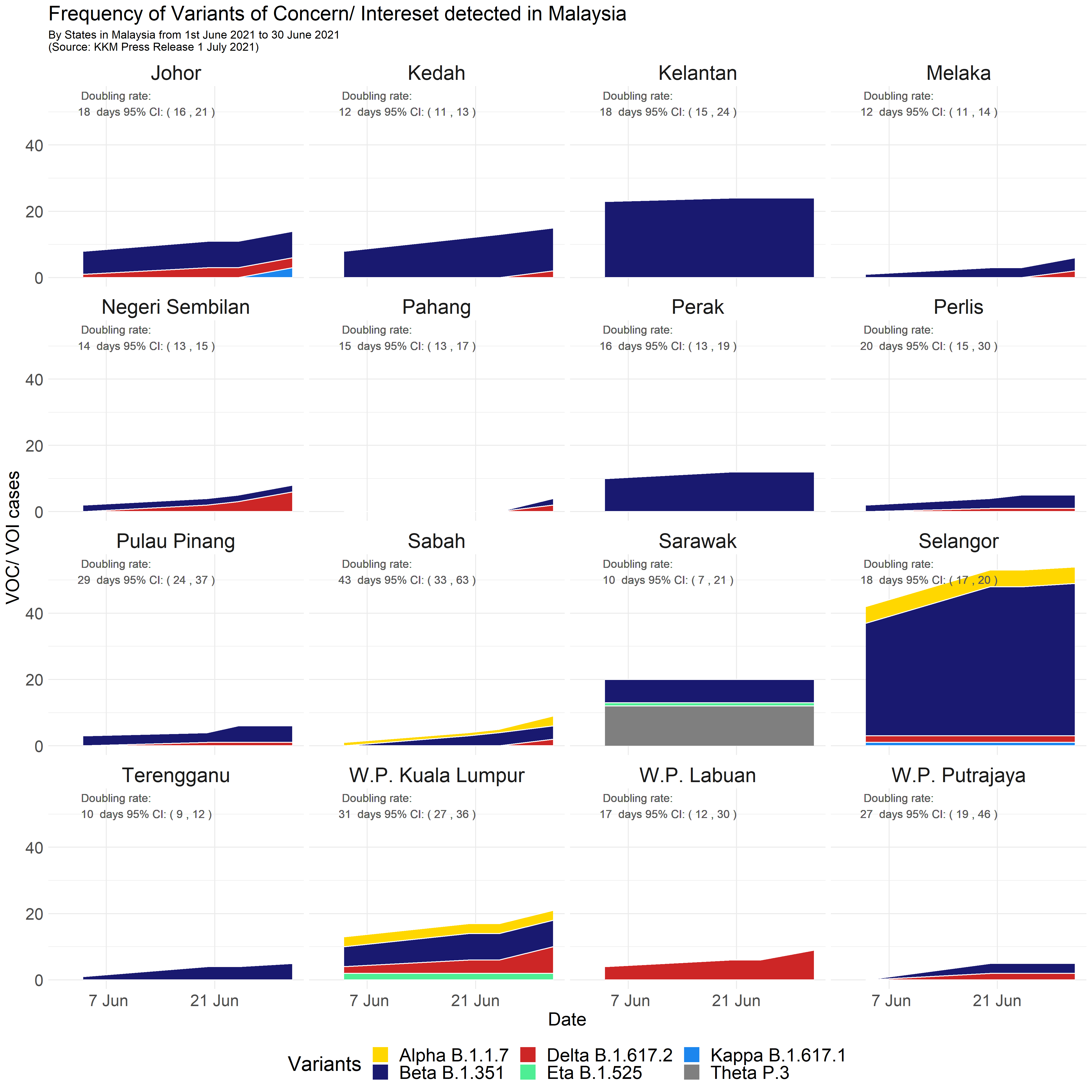It has now been more than 500 days since the first reported case of Covid-19 in Malaysia. Our initial response was swift and decisive and delivered what appeared to be a victory over a year ago.
However, a resurgence of cases due to a diverse set of reasons have left the Malaysian health system teetering on the edge, and Malaysians generally fatigued from cycles of Movement Control Orders (MCOs) and various SOPs.
The rise of mutant strains of the SARS-CoV2 virus has further compounded the problem by increasing the potential for transmission.
There are several strains within our communities. The Alpha (B.1.1.7), Beta (B.1.351), and Delta (B.1.617.2) strains have been reported across the country beginning in early February 2021.
The Beta strain is the most frequently detected and pervasive variant of concern within the last two months. Doubling time, considered a proxy for transmissibility, has been 21.5 days (95% CI: 20.1-22.9) in Malaysia.
This doubling time is like that observed (22.7 days) across the third wave of infection between September 2020 and January 2021. This transmission rate is consistent with the current understanding of the beta variants. They exhibit only a slight increase in transmissibility compared to the original wild strain.
Several other variants of concern, including the Alpha and the now infamous Delta, have been detected but remain at relatively lower levels. These strains have been estimated to be 40 to 90 per cent more infectious than the original wild strain, and may likely be future dominant strains.
The Beta and Delta variants decrease the effectiveness of current vaccines. Recent evidence has suggested that Pfizer and AstraZeneca maintain efficacy levels of approximately 95 per cent and 60 per cent, respectively.
Increasing vaccinations to a high enough threshold will create an immunity wall that reduces severe disease. The UK and Israel, two countries with about 80 per cent vaccination coverage, are good examples of this. Both these countries are now experiencing an increase in cases due to the Delta variant.
Although there has been an absolute increase in hospitalisations, this is relatively small compared to earlier waves of infection when vaccination rates were low. Additionally, Covid-19 associated mortalities have remained low.
The circulation of these strains can be hugely damaging to any plan we have for reopening the economy. In light of the recent Covid-19 roadmap, we must be cognisant of these new developments.
Critical to these developments are robust surveillance of variants of concern with complete transparency of data. The Ministry of Health currently only sequence a fraction of the total samples taken.
However, sequencing must be scaled up, and alternative surveillance sources should be explored, such as using wastewater. The genomic sequencing findings should be publicly shared in a transparent way to increase trust.
This process of identifying strains is critical in understanding and tailoring our policy initiatives in controlling the disease within the community.
Contingencies, including increased contract tracing and testing capacity, should be developed to address the possibility that these variants become dominant in the future.
Most importantly, while current vaccination programmes are progressing well — the emergence of these variants signal the need for an acceleration of the current pace. Immunity walls appear to be holding for now — and we must strike while the iron is hot.
Failing to vaccinate rapidly increases the probability of further strain evolution, which increases the possibility of vaccine failure and an extension of a crisis 500 days too long.
Prof Dr Sanjay Rampal is an epidemiologist and public health physician at the University of Malaya, and Dr Vivek Jason Jayaraj is a Doctor of Public Health candidate at the University of Malaya.
- This is the personal opinion of the writer or publication and does not necessarily represent the views of CodeBlue.






